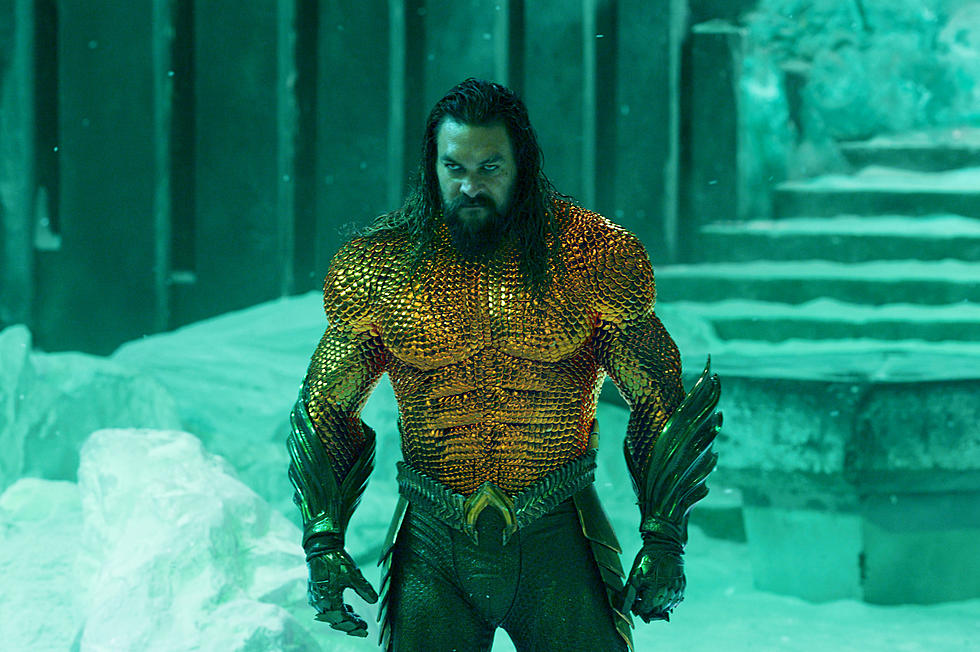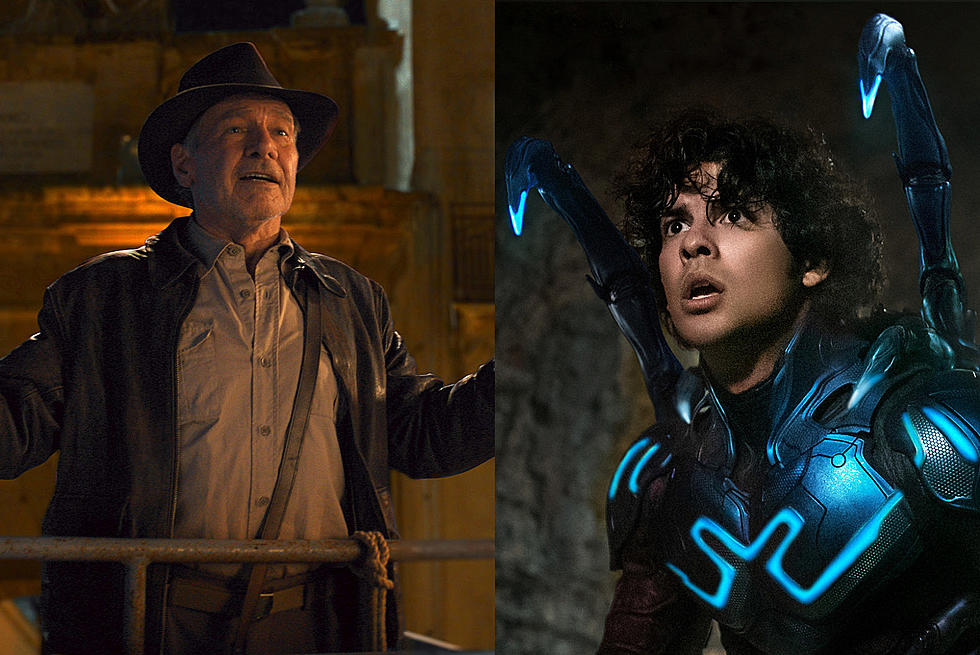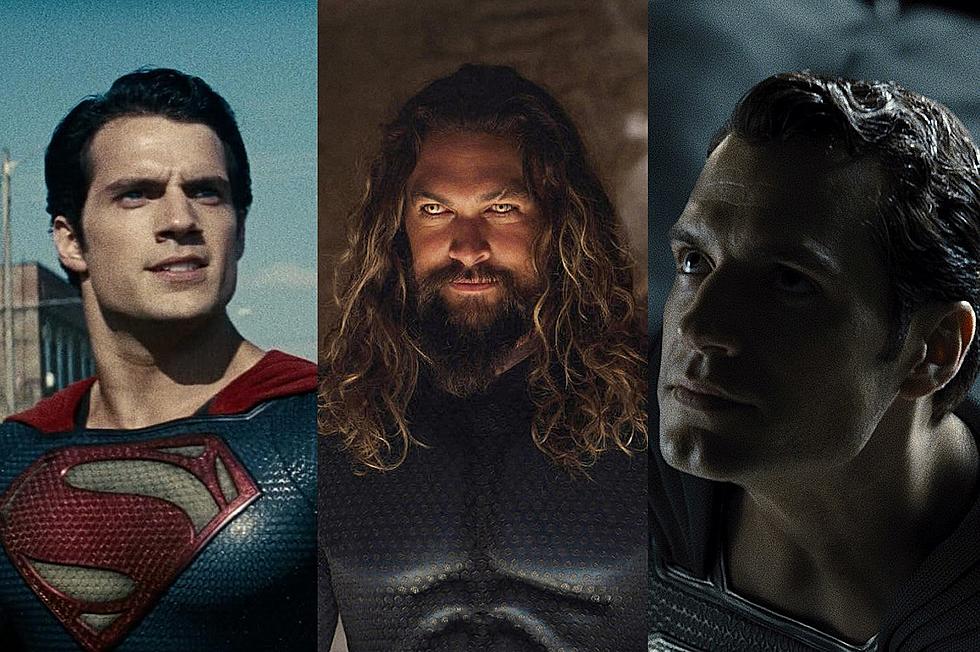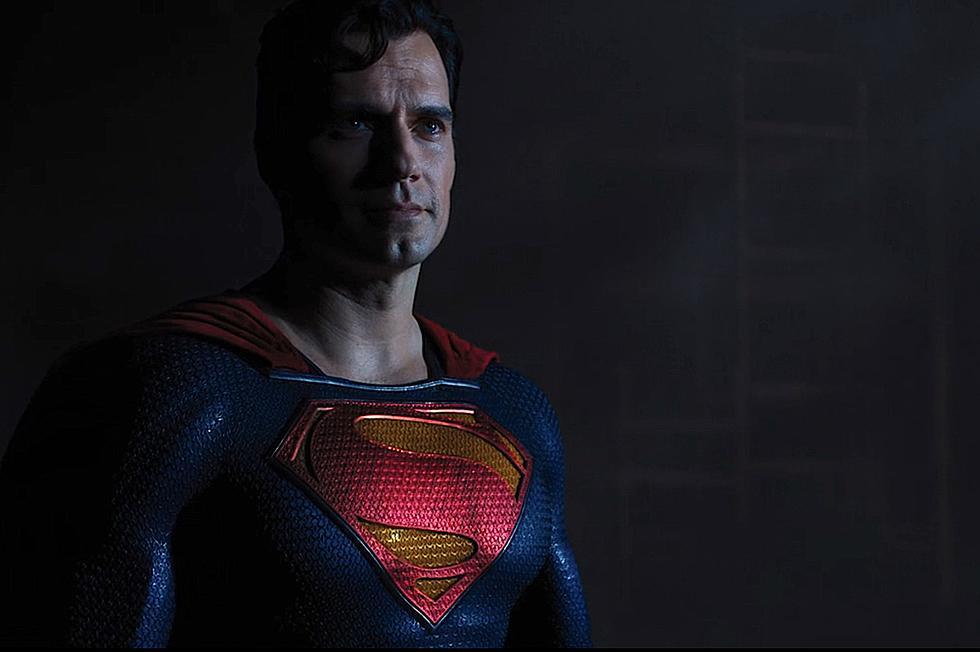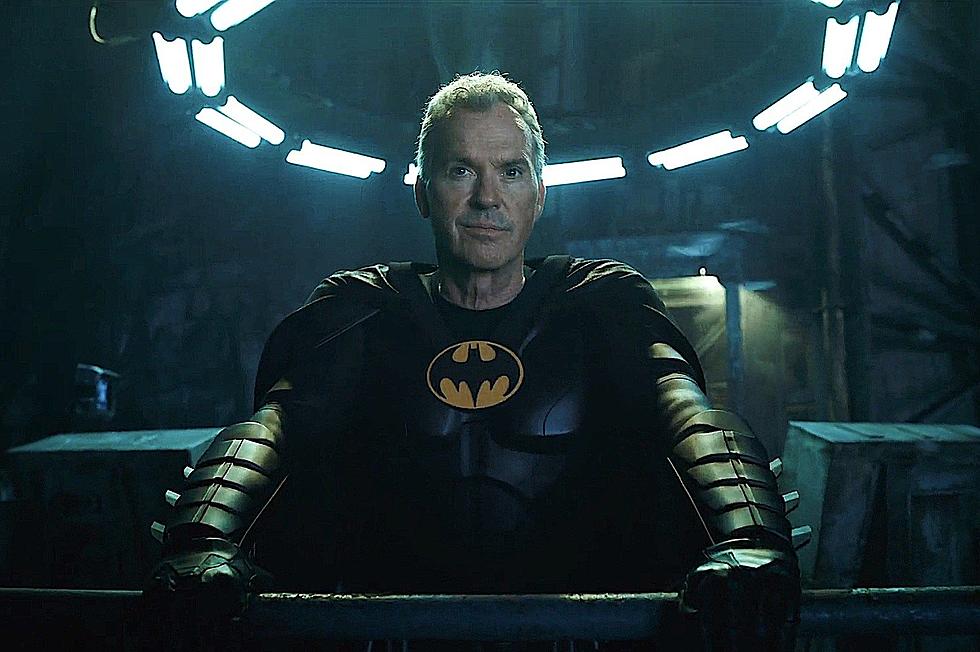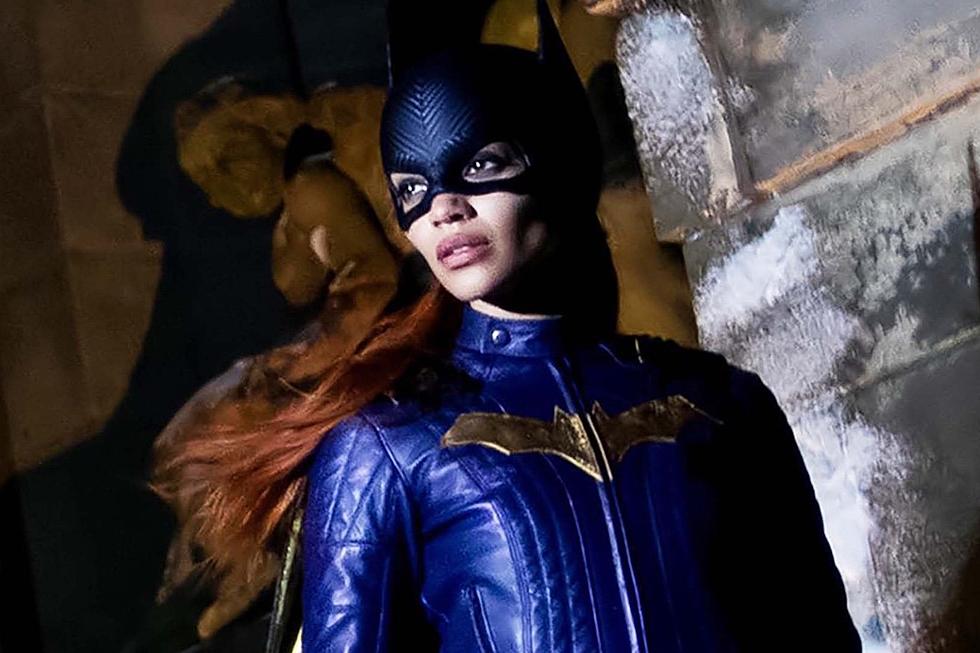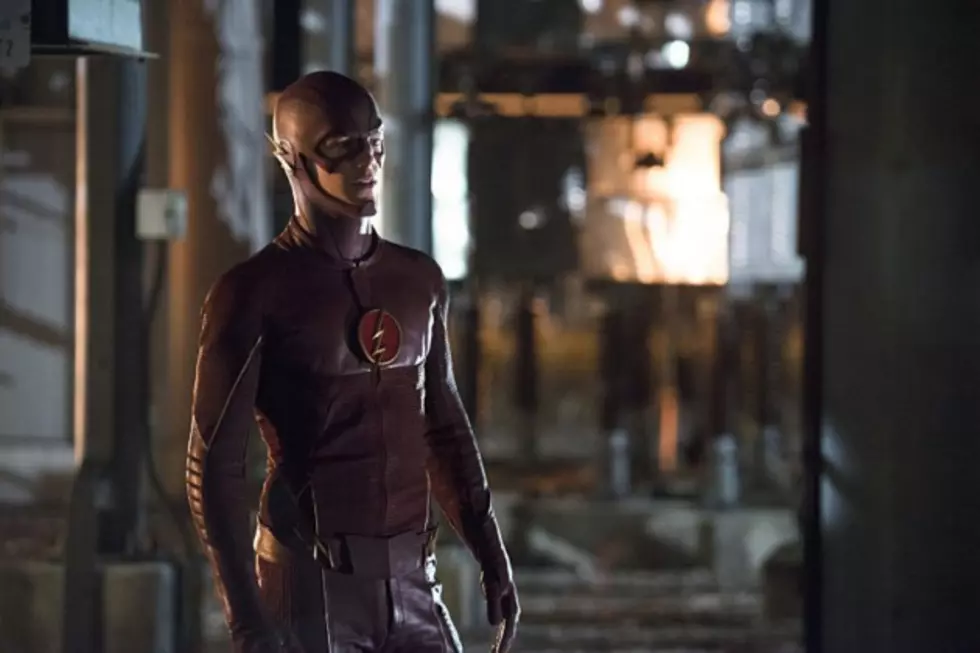
‘The Flash’ Review: “Power Outage”
All shows need to figure out ways to stretch a season-long production budget, especially those with moderate-to-heavy special effects. So it’s not a huge surprise to get an episode of ‘The Flash’ like “Power Outage,” which functioned as something akin to a double bottle episode. Crafting a sequence like last week’s SUPERSONIC PUNCH costs a pretty penny, and sometimes that means cutting corners in other episodes. So this week’s episode turned off the superpowers for the most part, turned the lights down low, and also turned off most of my interest in the process.
That’s not to say that an episode involving little superspeed automatically means an inferior episode of the show. An episode based around Barry’s temporary limitations, especially in light of his newfound arrogance, is a mighty fine concept for an episode. But the execution here was off, primarily for the curious storytelling choice to smash two unrelated episodes into one. I like the idea of a de-powered Barry and the rest of the S.T.A.R. Labs crew trying to outwit a seemingly omnipotent electricity-based vampire. I even don’t mind the idea of The Clock King holding hostages while speaking like The Count from ‘Sesame Street.’ But in this case, two rights made a wrong. Instead of peanut butter and chocolate, this was ice cream and beer.
And that’s a shame, since stripping heroes of their abilities is a tried-and-true way to show what makes these people truly tick. (The ‘Buffy The Vampire Slayer’ episode “Helpless” instantly springs to mind in this sub-genre of superhero storytelling.) Barry’s initial arrogance at the outset of this hour comes slightly out of left field, but it’s a perfectly fine jumping-off point for an episode about him recognizing the “great power, great responsibility” aspect of his powers by episode’s end. (To further the Spider-Man comparisons, this episode essentially pulled a ‘Spider-Man 2’ and suggested that Barry’s loss of power was all about mental mojo rather than actual physiology.) It also provided a theoretically chance for Barry and Harrison Wells to start having more confrontations about the nature of their relationship and Wells’ ultimate goals.
So far, so good. But by dividing the episode up into two unrelated halves, “Power Outage” blew an opportunity to provide a pressure-filled episode in which Barry, Harrison, Caitlin, and Cisco were forced to inadvertently reveal secrets and/or some ugly motivations. Again, the episode set up this scenario perfectly, with the villain Blackout stalking the halls and sending his non-powered adversaries scrambling to find any advantage. But the cat-and-mouse game was oddly tame, and the most interesting scene involved Wells with Girder, a non-entity last week and now a dead entity this time around. Girder’s death meant Barry and company don’t know the full reasoning behind Wells’ decision, and as such are still operating as a happy, makeshift family at episode’s end.
That’s a shame, because even though Wells’ marching orders to Girder were violent, they were not entirely monstrous. Through his own personal version of Tony Stark’s J.A.R.V.I.S. (in this case, an A.I. construct named Gideon), Wells either has access to the future or at least has something akin to what Isaac Asimov once dubbed “psychohistory” in his seminal ‘Foundation’ series of novels. Now, psychohistory was about predicting the future via mass psychology versus individual action, which makes The Flash analogous to The Mule in those books, and… I’ve totally lost all of you, haven’t I? Point is this: I’ve been assuming Wells has had some sort of magic link to the future. In fact, he might just be working with a computer model that’s telling him what Wells wants to hear. That makes somewhat sense in a world in which Barry can’t run fast because he’s scared: Both men fashion their own realities around their blindspots.
In any case, what Wells truly fashions himself is hero of this show. That’s an important quality for any interesting character to have, but it’s especially when the villain possesses it. That’s not to say that Wells is the villain in the traditional sense. I’m less convinced than ever that he’s Professor Zoom at this point, but that doesn’t mean he’s by default a “good person”. (The brilliance of Lex Luthor, after all, lies in the courage of his convictions.) Barry questioning Wells’ morality/humanity after Woodward’s death was a strong scene, one rendered almost moot by Barry’s seemingly re-affirmed attitude to blindly follow Wells’ lead by episode’s end. Barry didn’t have to forgive Wells for Woodward’s death, but he should have at least incorporated it into his overall view of their work together. Creating a straight-up schism isn’t advisable this early in the overall game of ‘The Flash,’ but a little sand in the Vaseline wouldn’t be the worst thing, either.
This is the point in the review where I’d normally talk about the second story involving The Clock King but I just punched myself three times just to stay awake long enough to finish this sentence because that was essentially twenty minutes of Robert Knepper as Trivia Night DJ and Joe West getting a perfect score in the “Famous Quotes” categories. Literally nothing happened. It was almost impressive.
You can’t blame a small budget on this episode’s problems. You can only blame execution. All the pieces were there for not just one, but two perfectly solid and fiscally responsible episodes of television. Instead, the show felt rushed together with a few half-formed ideas that could have used a few extra drafts and a heavy dose of narrative streamlining. Oh well. Next week we get the ‘Arrow’ crossover, and the Fall finale the week after that promises to reveal the identity of man in the yellow suit. This was a small bump in the road. Just go watch that SUPERSONIC PUNCH GIF for the next seven days and get excited for the end of this show’s inaugural autumnal run.
A few odds and ends:
- I thought for sure this episode was going to damage Iris’ blind faith in The Flash. Instead, it just reaffirmed her belief in him. Again: WHY DID THAT ENTIRE PLOT HAPPEN?
- New theory: Wells is the Mr. Glass to Barry’s David Dunn, serving simultaneously as both mentor and antagonist. He’s going to manipulate Barry’s empathy into creating an ever-faster superhero for… well, something that will result in his disappearance. Maybe that’s what the extraction in the teaser scene was about: Removing Barry from the equation after he fulfills his “destiny.”
- I enjoyed the Barry/Caitlin scene just before he got re-zapped with electricity, even though I’m worried the show is trying to make these two happen, just like it’s trying to make Barry and every female character that walks onscreen happen. (It was especially unfortunate in an episode in which Wells name-dropped Ronnie Raymond.)
- Barry Allen LOVED that mug, Joe. How could you?
- Not a lot of Eddie this week, but High As A Kite Eddie was still funny as hell.
- In the Fall finale, we’ll learn that “Gideon” is just the version of Siri that comes out with the iPhone 7.
More From ScreenCrush
